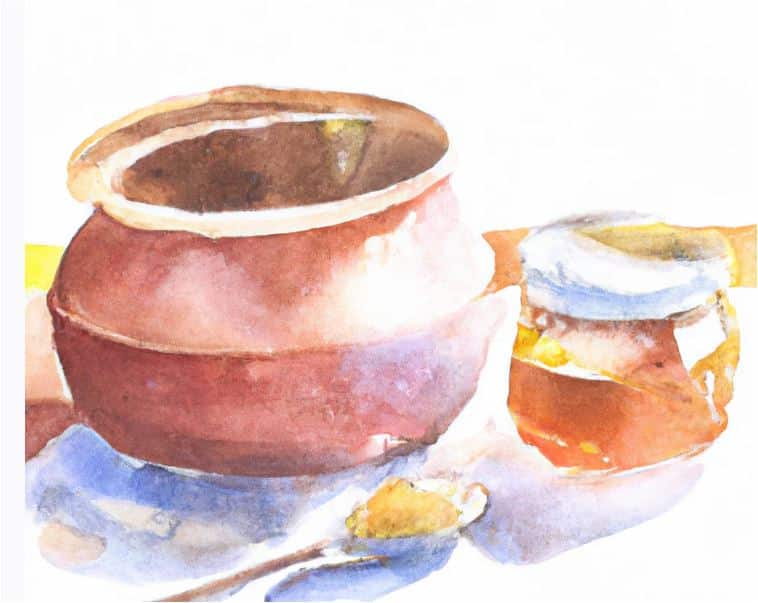Sugar substitutes are used to replace sugar in foods and drinks. There are many different types of sugar substitutes, some of which can be used to sweeten food and drinks, while others are only suitable for cooking. Some sugar substitutes contain calories while others do not; as such, the type you choose may matter if you’re trying to lose weight or maintain a healthy diet.

What are sugar substitutes or non-nutritive sweeteners
Sugar substitutes are sweeteners that provide the same sweet taste as sugar without the extra calories.
Sugar substitutes are used in the food industry to lower the calorie content of foods and drinks. They can also be used for other purposes, such as improving texture and stability.
Sugar substitutes can be natural or synthetic. While some naturally occurring sugars, such as honey and milk, have been used for centuries as an alternative to refined white cane sugar, today’s most common non-nutritive sweeteners are artificially produced chemicals with no nutritional value whatsoever.
Commonly used sugar substitutes.
Some of the most commonly used sugar substitutes are:
- Saccharin (Sweet’N Low)
- Aspartame (NutraSweet)
- Sucralose (Splenda)
- Stevia (Truvia)
Saccharin
Saccharin is 300 times sweeter than sugar, and it’s made from coal tar. It’s used as a sugar substitute in drinks and candies, and was first discovered in 1879 by Constantine Fahlberg while he was working on making artificial sweeteners. Saccharin is a white powder that you might see on the table at the restaurant or cafe where you’re having lunch or dinner with friends or coworkers.
It’s also found in some foods like cereals, beverages (like diet soda), jams and jellies, candy bars (such as gummi bears), cakes/cookies/pie crusts etc., salad dressings; sweeteners such as Splenda are often made with saccharin instead of actual sugar!
Stevia
Stevia is a natural sweetener derived from the leaves of the stevia plant. It is 200 to 300 times sweeter than sugar, with zero calories and no impact on blood glucose levels. The plant grows in countries like Paraguay, Brazil and Japan; however, it’s also cultivated in many other parts of the world.
Stevia has been used for centuries as a sweetener in South America, where it was referred to as “sweet herb” or “sweet leaf” by native peoples. In recent years it has grown in popularity as an alternative to artificial sweeteners because it doesn’t have any bitter aftertaste like saccharin or aspartame and can be used at very high concentrations without imparting any off-flavors onto your food (which makes it ideal for cooking and baking).
Aspartame
Aspartame is a sugar substitute that’s found in many of our favorite foods and drinks. Aspartame is used to sweeten foods and drinks and can replace sugar in all its forms, from white table sugar to corn syrup. It’s also used in some chewing gums, low-calorie desserts, protein bars, and other products.
Aspartame is one of the most commonly-used artificial sweeteners available today. But despite its popularity among consumers looking for a low-calorie alternative to regular cane or beet sugars, there are concerns about whether this artificial sweetener is safe for use as an alternative to common table sugars like sucrose (table sugar) or fructose (fruit sugar).
Are they safe for diabetes?
Sugar substitutes can be a great way to cut down on sugar and calories in your diet. But are sugar substitutes good for diabetes?
Previous animal and observational studies (in humans) have suggested that the most popular sugar substitutes, like aspartame, saccharin, and sucralose, can actually cause problems for people with diabetes. However, there’s some conflicting information out there about whether this is true or not.
In a recently published randomized clinical trial (the best evidence in biomedical research), there is evidence that non-nutritive supplements alter gut health (microbiome) and negatively impact diabetes care (the role of gut health in the causes of diabetes is reviewed here)
In this study on healthy volunteers, the authors assessed the effect of sugar substitutes on gut health and blood sugar control. A total of 120 healthy adults received saccharin, sucralose, aspartame, stevia, glucose vehicle (an additive found in most sachet mixtures) or a placebo (an inert substance) in a ratio of 1:1:1:1:1:1
Study participants on non-nutritive supplements consumed 2 sachets 3 times a day for a total of two weeks after which supplementation was discontinued and patients followed up for an additional week. Aspartame, saccharin, sucralose, and stevia in a ratio of 8%, 20%, 34% and 75% of the acceptable daily intake, respectively.
The authors then assessed various clinical parameters including oral microbiome, stool microbiome and various indicators of the body’s response to food intake. Although all four major sugar substitutes altered the gut microbiome in a distinct manner, sucralose and saccharin were the only one that negatively impacted the body’s response to an increase in blood sugar (glycemic responses). This study further highlights the negative impact of sugar substitutes on gut health and blood sugar control.
A limitation of this study is the fact that it was done in healthy adults; as such, the results cannot be extended to the general diabetes population.
Are sugar substitutes zero calories?
The answer is no! Sugar substitutes are sweeteners that have fewer calories than regular table sugar, but they’re not exactly calorie-free. Aspartame, saccharin, and sucralose (also known as Splenda) all contain calories, but they’re fewer than the amount in table sugar. Stevia is a plant-based sweetener that contains no calories at all.
Conclusion
While most of these non-nutritive sweeteners are safe in moderation, consult with your doctor before consuming them if you are pregnant or breastfeeding. If you’re trying to lose weight, these sweeteners can help you stay away from sugar without sacrificing taste. As for diabetics, there’s evidence that some of these sweeteners may help control blood sugar levels in the short term (immediately after consuming them). Their role in insulin resistance and worsening diabetes control is undoubtedly a concern.
The bottom line is that there are a lot of sugar substitutes out there. Some of them are natural, and others are artificial. The best way to determine which one is right for you is by discussing it with your doctor, who will be able to tell you if they’re safe in moderation or not.
Reference
Mathur K, Agrawal RK, Nagpure S, Deshpande D. Effect of artificial sweeteners on insulin resistance among type-2 diabetes mellitus patients. J Family Med Prim Care. 2020 Jan 28;9(1):69-71. doi: 10.4103/jfmpc.jfmpc_329_19.
Kindly Let Us Know If This Was helpful? Thank You!


